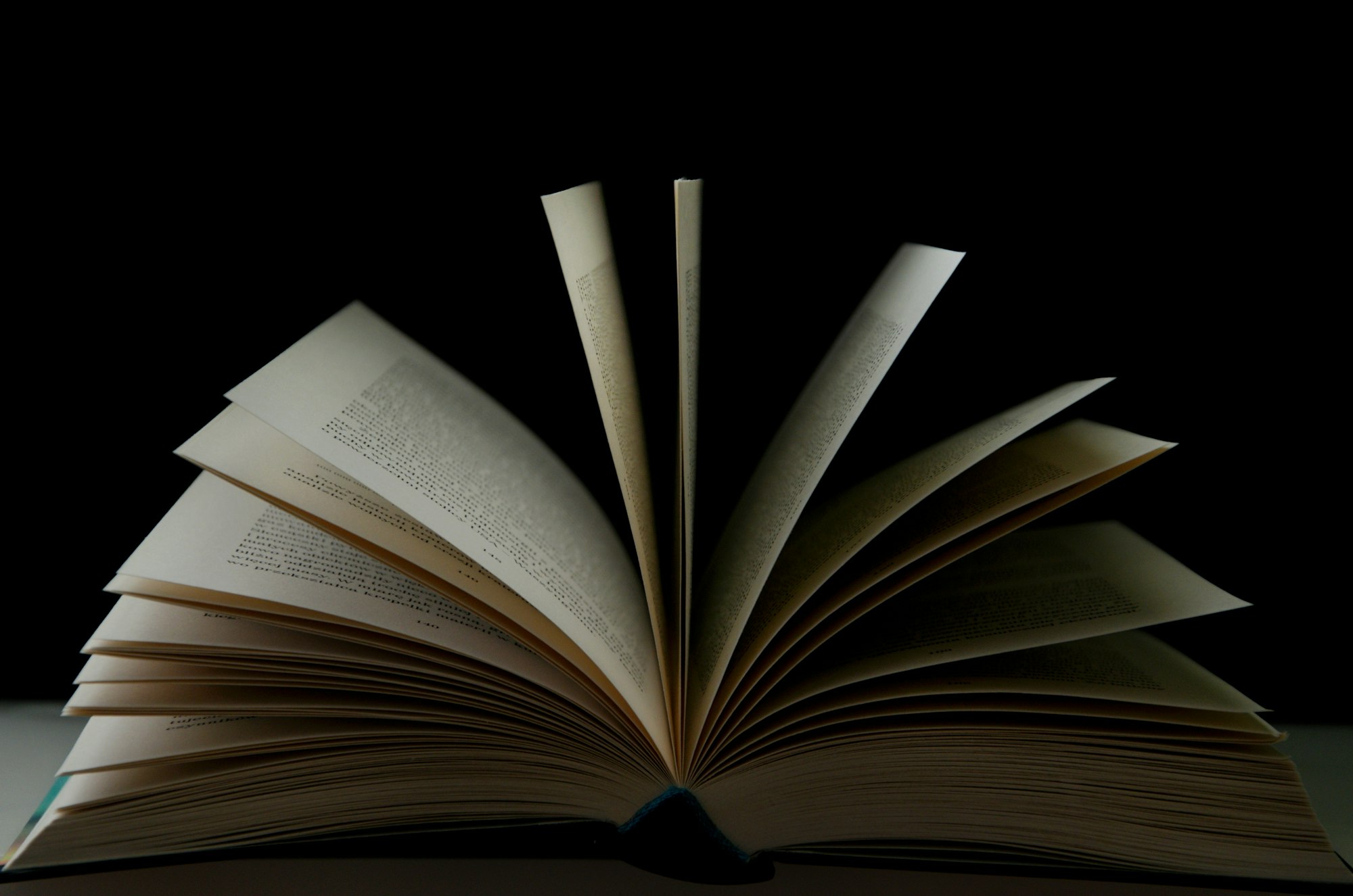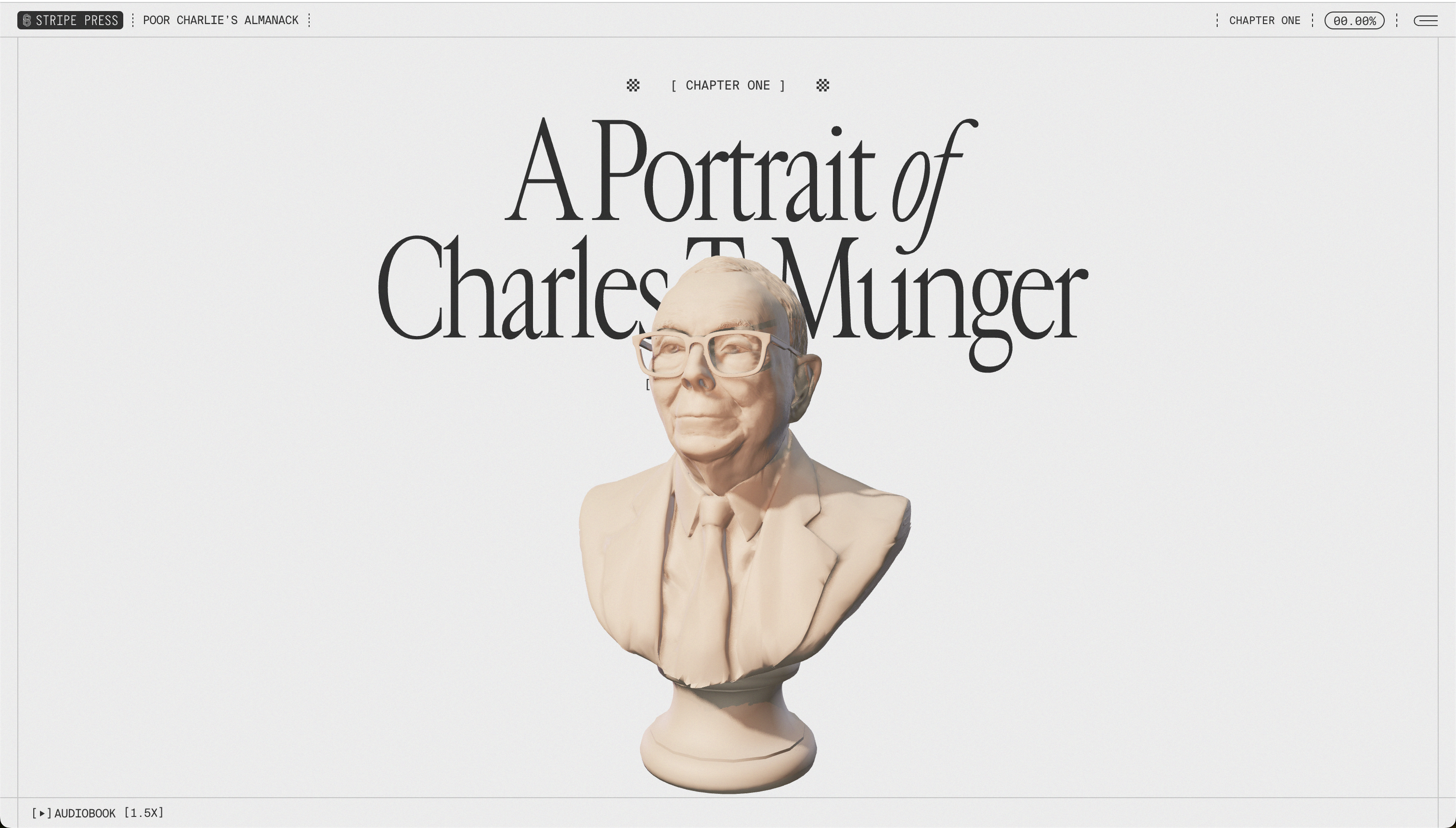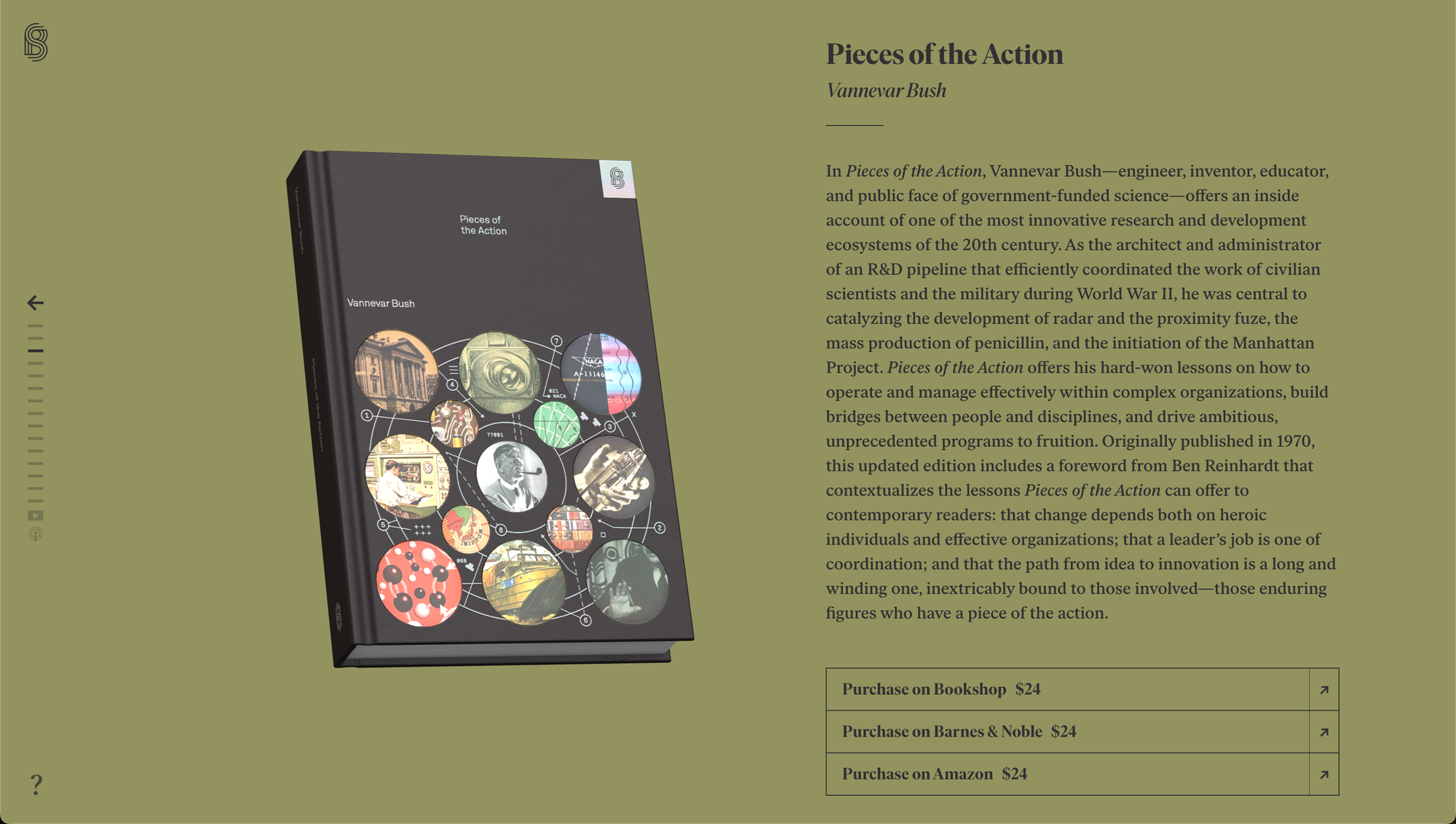Notes on reading: 2023
How I regained my appetite for good books thanks to late Charlie Munger

As far as I remember myself, I always loved reading. My average book scores were 30-40 volumes per year. Yet something broke in 2023. Suddenly, books felt distant and faded away. What happened?
“How do I read more” is a subpar question compared to “Why did I read less”. The answer is: I was drowning.
Today, life could be as complex as you want it to be. Unicorns emerge, banks go bust, AI advances. Articles, tweets, podcasts bombard us, shrinking an already devastated attention span. In these unforgiving waters, I was losing it.
And then everything changed.
Munger enters the scene
It was an evening in early December. Browsing Twitter, I was once again reminded that Charlie Munger died recently. What a loss!
There, was, however, something more: Stripe Press just re-published “Poor Charlie’s Almanack”. It’s free to read on the web.
So I clicked. Previously, I was exposed to Munger’s and Buffet’s school of thinking and writing. “Almanack” isn’t different. It preaches compounding your money and wisdom, props good old Midwestern values and signs odes to business, science and reason. But it’s no ordinary book, and its core message hits hard.
To make an impact in life, you need to become a polymath, argues Munger. Not necessarily (and very unlikely) through formal education, but rather by building up a “latticework of mental models” across several disciplines. It will be your Swiss knife to crack problems. Munger himself “never taken any course, anywhere, in chemistry, economics, psychology, or business.”

Mental models are laws and rules which define the reality and which you operate well enough. From Euclidean geometry to the relativity principle and recognition of various cognitive biases.
The world is, of course, explained in many ways. Physics, maths, history and psychology is what I consider the basic setup to scratch beyond its surface. Why do that? Applying basic, fundamental mental models could make you rich, and that could make you independent, which Munger sets as an end goal. I dig this.
Not because I’m greedy or lusting for a Forbes spot, but because, paraphrasing Tawney and Fromm, I’m not a fan of seeing capital as a master of man. I prefer it to remain a servant. That requires efforts.
Moving towards action
For what I gained in mental clarity, I still lacked any kind of latticework of mental models. If anything, I drifted away from being a polymath.
The likely scenario was to be a mess.
Books are the best way to change it. No wonder that both Munger and Buffet famously spent most of their Berkshire days reading. Being exposed to good writing helps to think clearly.
From there, my reading habits improved dramatically. When I finished the last chapter of “Almanack”, I restored my curiosity. From just 5 finished volumes read by the end of November, I’ve arrived at 14 by New Year's Eve. Some of my favourite picks were:
- “American Prometheus: The Triumph and Tragedy of J. Robert Oppenheimer” by Kai Bird and Martin J. Sherwin.
- “The Making of the Atomic Bomb” by Richard Rhodes.
- “Pieces of the Action” by Vannevar Bush.
- “The End of History and the Last Man” by Francis Fukuyama.
- “Sicily 43” by James Holland.
- “Working” by Robert A. Caro.
It’s easy to spot one pattern. Four of those top picks are related to WWII innovations history. Oppenheimer’s biography and Rhodes’ tome (950 pages!) tell about the A-bomb. Vennevar Bush headed the U.S. Office of Scientific Research and Development (OSRD), through which almost all wartime military R&D was done.

His book excels at putting other projects under the spotlight — radar, proximity fuse, amphibious vehicles and anti-submarine tools were essential. He also explains why it’s put scientists and military officers in synergy. Sicily 43’ covers one of the first operations when the true might of the American industrial and scientific power wrecked the fortress Europe.
I recommend all of the above.
Noting the difference
I’ve also worked on my note-taking process. It was always a mess. My typical book was ridden with notes, highlights, index markers and stickers (example below). All of it more or less became dead weight once I closed it. Instead, I’ve adopted a system somewhat similar to the Zettlekasten method described by Sönke Ahrens.
- During reading, I put fleeting notes — simple captures of my thoughts and observations. They are treated as an inbox material to be discarded later.
- I also take one reference note where I chronicle important concepts and good quotes to find them later. “Munger’s principles of investing — p.72”, “Why is writing important for technical specialists — p.86”, “Bush on Roosevelt managerial approach — p. 90”.
- The end product is a permanent note, or a few of them. There I lay out my main observations, or prove some ideas. It’s a full-fledged essay which draws upon fleeting notes, uses references and forces me to recall the most important things. It’s challenging and non-linear. I didn’t write a permanent note about three ways of uranium diffusing from “The Making of the Atomic bomb”. But I put together my thoughts about free exchange of information and scientific progress, among other things.
There’s more to this system, but that’s for later.

What matters for me is a feeling that I can slowly drift in the right direction and compound wisdom.
It’s an exciting journey. Of course, I could have just bought a calculus textbook to freshen up my maths knowledge. Same with physics. But forcing the latticework of mental models on you doesn’t work. Context, interest and the process of extracting information matters. It’s much easier to study physics once you saw it in action by Rhodes' marvellous explanation.
All in all, this is not a brag to call myself a polymath. I’m an inch closer and ten miles away. This is a state of my reading at the dawn of 2024. What's yours?
If you want to follow my reading updates closer, you can follow me on Goodreads.
If you will be interested in reading in-depth articles on my readings, leave a comment below.
